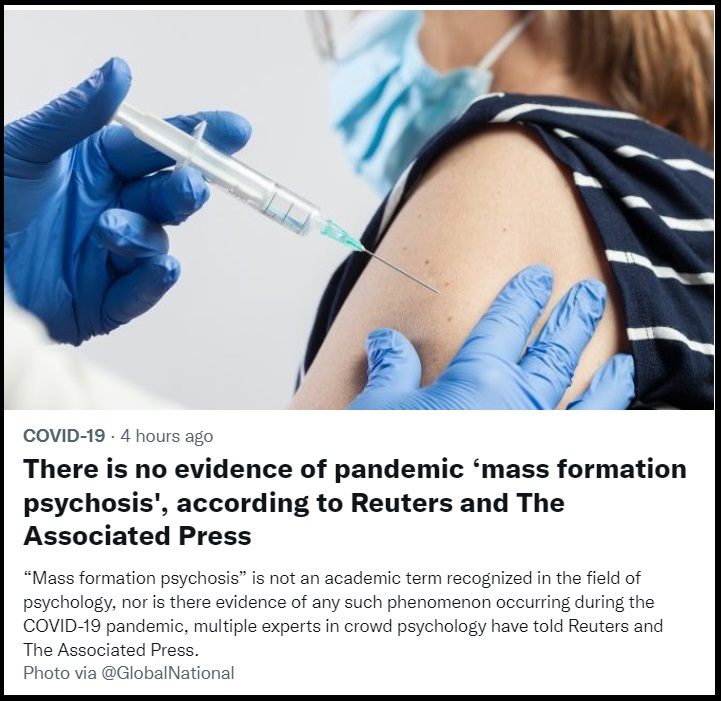
(AP) – […] “The concept has no academic credibility,” Stephen Reicher, a social psychology professor at the University of St Andrews in the U.K., wrote in an email to The Associated Press. The term also does not appear in the American Psychological Association’s Dictionary of Psychology.
“Psychosis” is a term that refers to conditions that involve some disconnect from reality. According to a National Institutes of Health estimate, about 3% of people experience some form of psychosis at some time in their lives.
[…] The description of “mass formation psychosis” offered by Malone resembles discredited concepts, such as “mob mentality” and “group mind,” according to John Drury, a social psychologist at the University of Sussex in the U.K. who studies collective behavior. The ideas suggest that “when people form part of a psychological crowd they lose their identities and their self-control; they become suggestible, and primitive instinctive impulses predominate,” he said in an email.
That notion has been discredited by decades of research on crowd behavior, Drury said. “No respectable psychologist agrees with these ideas now,” he said.
Multiple experts told the AP that while there is evidence that groups can shape or influence one’s behaviors — and that people can and do believe falsehoods that are put forward by the leader of a group — those concepts do not involve the masses experiencing “psychosis” or “hypnosis.” (read more)
Reuters offers this simultaneous rebuttal:
(Reuters) – “Mass formation psychosis” is not an academic term recognized in the field of psychology, nor is there evidence of any such phenomenon occurring during the COVID-19 pandemic, multiple experts in crowd psychology have told Reuters.
[…] There is no evidence to suggest a “mass formation psychosis” has occurred during the pandemic, experts told Reuters. The term itself is not recognised among academics, and modern research into crowd psychology has shown that crowds do not behave in mindless or non-individualistic ways. (more)
Once a collective group creates an alternate reality of itself, in this case a totalitarian reality based on government needing to create an irrational illusion of fear that becomes part of the accepted national identity, how can anyone call attention to the outcomes without finding themselves in front of the board of inquisition who organizes the collective?
